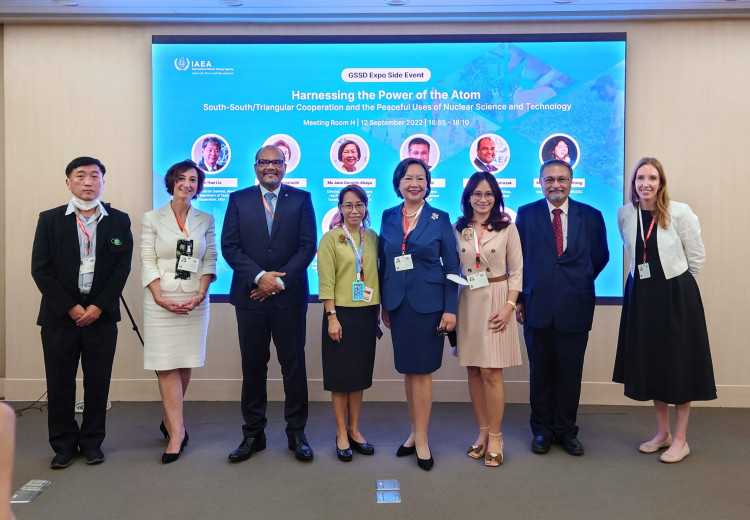From 12 to 14 September, at the United Nations Global South-South Development Expo (GSSD Expo) in Bangkok, Thailand, the IAEA showcased the contributions of nuclear technology to global development and shared best practices in South-South and Triangular Cooperation, organizing a side event in collaboration with the United Nations Office for South-South Cooperation (UNOSSC), UN Economic and Social Commission for Asia and the Pacific (ESCAP) and the Government of Thailand, and an exhibition booth, complementing the IAEA Virtual Booth launched in July.
The Expo was held in person for the first time since 2018 and held in the Asia-Pacific region for the first time ever. The event brought together more than 4 000 representatives of national governments, development agencies and over 20 United Nations agencies, in addition to private sector and youth delegates.
South-South cooperation plays a key role in the implementation of the IAEA’s technical cooperation programme. “It’s quite simple: we couldn’t fulfil our mandate of Atoms for Peace and Development without it,” said IAEA Director General Rafael Grossi on the Expo’s opening day, stressing that South-South cooperation is key to the work of the IAEA.
“Many developing countries in Asia and the Pacific are now actively supporting neighbouring countries by providing training on nuclear techniques to support better healthcare outcomes, cleaner environments and safer food,” said Ambassador Morakot Sriswasdi of the Kingdom of Thailand, underscoring the strong support extended by her government to the IAEA in support of its efforts to promote South-South cooperation. “The Government of Thailand is committed to supporting this dynamic and co-organized this side event to help share the experiences, good practices and wisdom of South-South policymakers and practitioners. We believe that nuclear science and technology is a valuable contribution to achieving the Sustainable Development Goals.”








